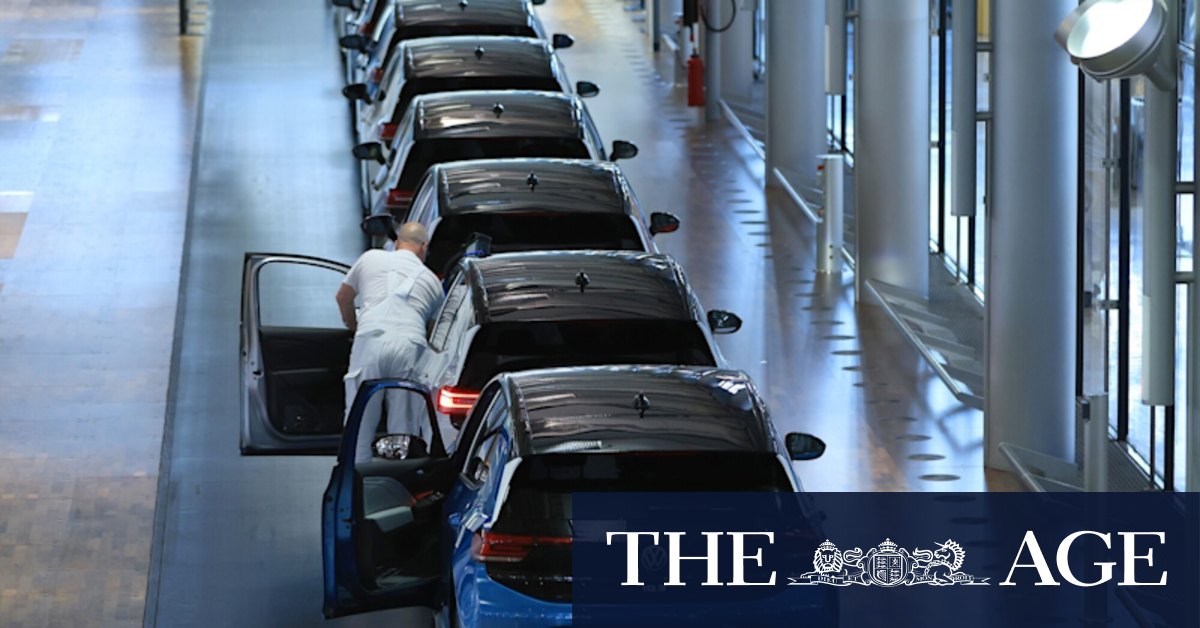But the announcement has been light on detail about how it could work, and when it could take effect.
Writing in The Financial Review, Australian Automobile Association managing director Michael Bradley said Australia could adopt a NSW policy to introduce a 2.9¢ tax on each kilometre driven either on July 1, 2027, when EVs account for 30 per cent of vehicle sales, or whichever comes first.
For an EV driver who travelled 10,000 kilometres a year, this would set them back by $300 per year.
Under the current arrangements, motorists driving a new petrol car over the same distance could expect to be out of pocket about $350 in fuel excise.
Bradley – who declined an interview with this masthead – said part of the revenue generated from the new taxes on EVs could be reinvested into new charging infrastructure.
“There is no doubt that range anxiety is a handbrake on EV adoption in Australia today,” he wrote in the AFR. “It is certainly a far more significant factor than the financial impost of a potential road-user charge.”
A complete rewrite: the EV Council model
No state or territory charges EV drivers for road use. Almost $16 billion is raised in annual fuel excise, but not all of this goes to road construction and maintenance. Instead, it goes into general revenue, from which governments can draw funding for a range of priorities.
Victoria introduced an electric vehicle tax in 2021, before the High Court ruled in 2023 the tax was unconstitutional.
Despite the High Court ruling, a challenge would need to be brought to the NSW scheme for it to be similarly found invalid.
Loading
But as the share of electric vehicles grows, there has been growing recognition of the need to capitalise on those sales. The EV Council says electric-only vehicles and plug-in hybrids accounted for 13.1 per cent of car sales in Australia between January to June.
The council’s head of legal, policy and advocacy, Aman Gaur, said Australia should consider scrapping fuel excise taxes, which charge motorists 51¢ for each litre of fuel, and replace them with a single road-use tax akin to a carbon tax.
This is a view backed by University of Queensland economics professor John Quiggin, who last month wrote in The Conversation that “fuel taxes should be considered a charge on motorists for the harmful pollution their vehicles generate”.
The EV Council has consulted government over proposed road user charges, arguing any new tax that targeted EVs would disincentivise the transition to electric vehicles.
Loading
“An EV-only tax would be a lump sum payment slapped on an EV driver at the end of the year, while the true cost of petrol is hidden from people,” Gaur said.
“The goal here is to get off petrol and diesel, which is 20 per cent of our national emissions.”
Gaur welcomed the treasurers’ statement confirming that looming reforms should be designed “to not deter the continued take-up of electric vehicles”.
This, he said, could only be achieved by applying consistent charges across all types of passenger cars, to avoid creating the perception among EV drivers of new and additional taxes.
Gaur argued that any new pricing model should be based on how far motorists travel, how much their vehicle weighs (and thus damages the road), and how much carbon dioxide their car was emitting.
“What we’re talking about is an implicit carbon price within the use of a car,” he said.
“Obviously, whatever number you put forward should, at the end of the day, highly encourage you to get into an electric car over a petrol car.”
Get alerts on breaking news as it happens. Sign up for our Breaking News Alert.

